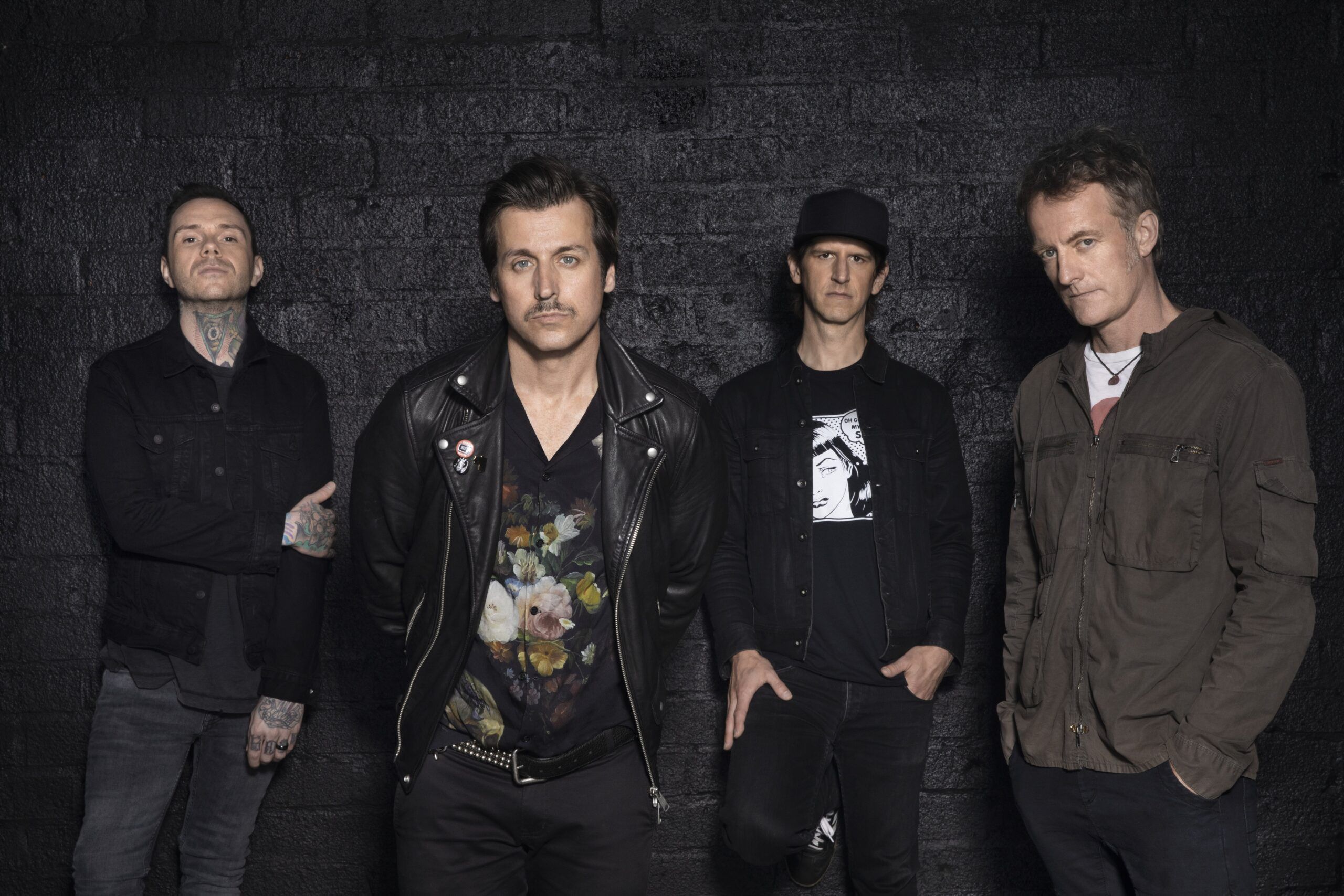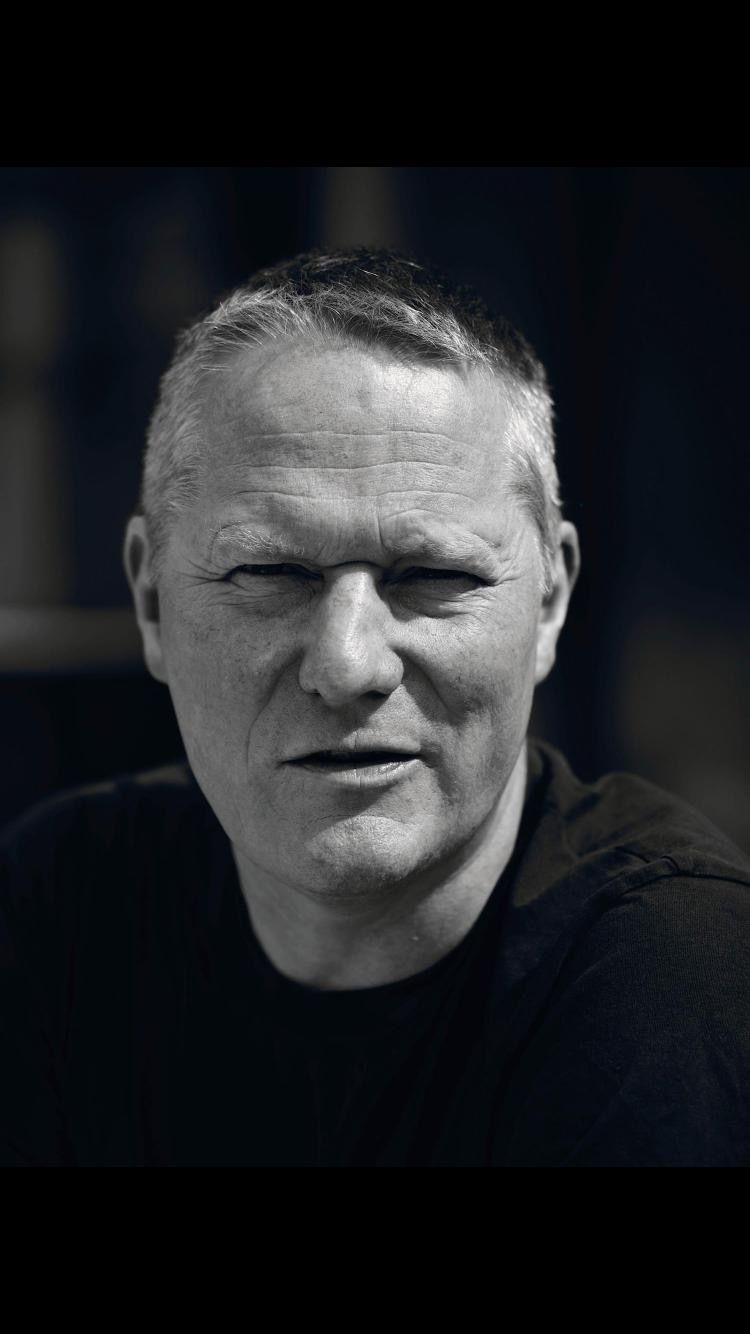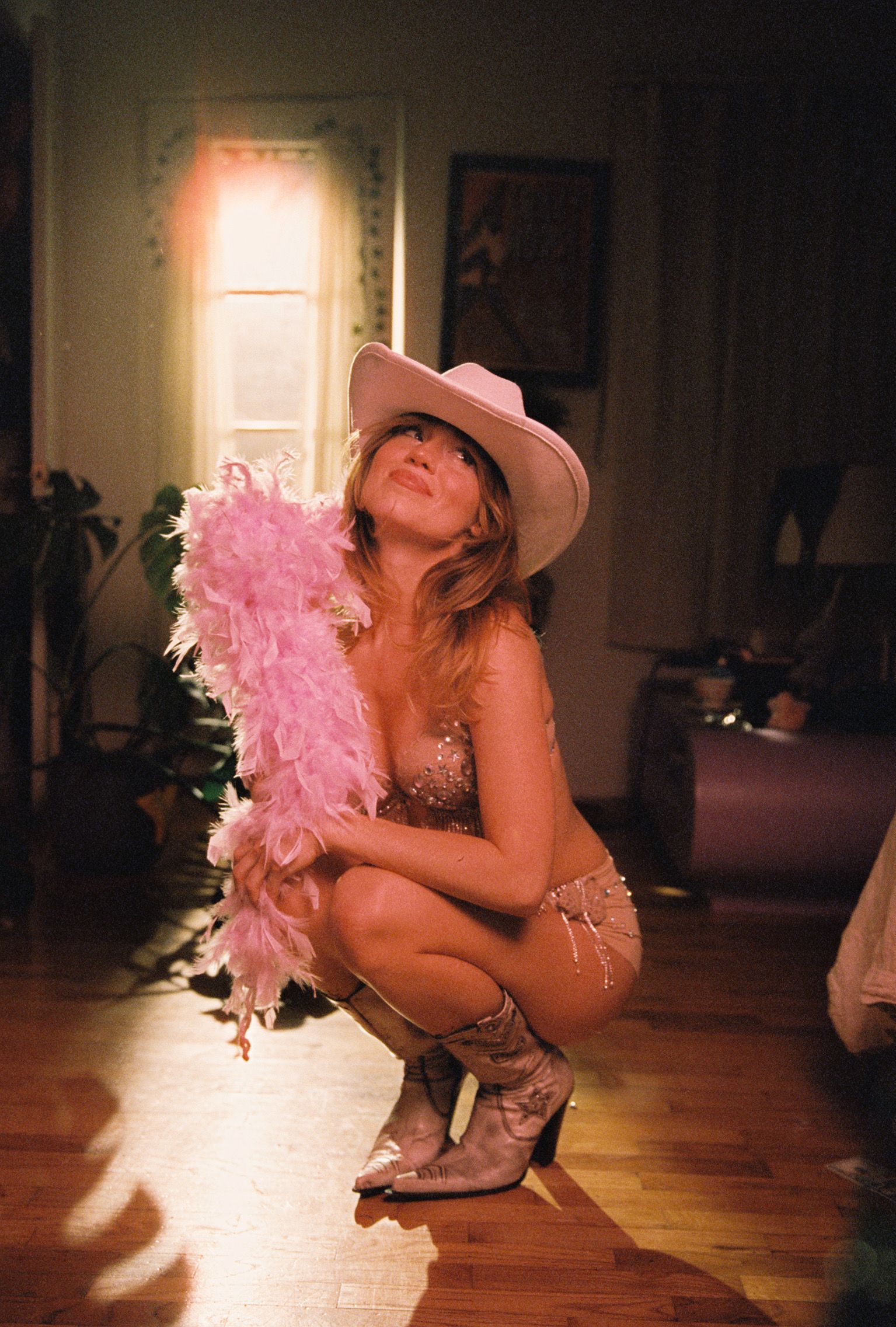The future is here. And if we look to the past, we will see it’s still coming.
That seems to be a theme with Our Lady Peace. Having come together in 1992, and seeing massive success throughout the 90s and early aughts, the band is afforded the rare privilege of being cemented in rock history alongside contemporaries like Nirvana or Smashing Pumpkins. However, what has always made Our Lady Peace particularly appealing, and arguably more accessible than many of their 90s peers, is the social awareness and human qualities in their songs and their ability to adapt to the era they’re in.
These very gifts are what led to their critic’s darling of a fourth album Spiritual Machines, a concept album released in 2000, based off futurist Ray Kurzweil’s similarly named book, The Age of Spiritual Machines, which was released just one year earlier in 1999. Could AI become singular? Are computers sentient? Fueled by the Y2K-induced hysteria surrounding technology, these questions struck a chord with the zeitgeist of the era. As time unfolded, the clairvoyance of Kurzweil’s musings became undeniable. With the 20-year-anniversary of Spritiual Machines’ coming during the 2020 lockdowns, the relevancy was palpable. It was time to revisit the future. The result is Spiritual Machines II, the band’s tenth studio album which features a new set of predictions from Kurzweil himself. Produced largely in conjunction with TV On The Radio’s Dave Sitek, it’s what lead singer Raine Maida has confirmed himself as “Future Rock”. It had been previously made available as a limited edition NFT, but is out everywhere today.
From being a highly regarded and massively successful touring act through the 90s, to connecting with fans through Web3 in the 2020s, all while remaining completely artistically relevant, Our Lady Peace is proof that today’s future is tomorrow’s past, and both are equally important.
In conversation with 1883, Andy Gorel chats with Raine Maida and Duncan Coutts from Our Lady Peace to discuss their new album Spiritual Machines II, being a touring rock band, Web3, and more.
Our Lady Peace came together in Toronto in 1992. What’s it been like making music under the same moniker for 30 years? Have there ever been identity struggles?
Raine: What do you think Coutts?
Duncan: Of course, there have been struggles.
Raine: Anything with that amount of time, you’re gonna have little blips, but I would say overall, the coolest thing about this band is that this campaign, this new record, is some of the best work we’ve ever done. That’s cool to say 25+ years later.
Is the band still based in Toronto?
Raine: Two of us live in LA, and two in Toronto.
Being a Canadian rock band, what weight does that term “Canadian rock band” carry to you?
Raine: Maybe a little bit now. I don’t think it ever has during our career. Especially during Covid, you start to appreciate not being able to go home to Canada. I found a new appreciation for Canada for sure because I’ve never been away from Toronto for that long. I think we do define ourselves a little bit more than we used to as a Canadian band.
Duncan: Yeah, I think we embrace it more now than we used to. Many years ago we just wanted to be a rock band.
Raine: We also broke in America first. I never had any ill-will toward Canada, but Canada didn’t really accept us until we broke in America.
Interesting, was that the first album?
Raine: Yeah, the first song was “Starseed”.
During the major label heydays, CDs, radio, and so on – was there a starker line? It seems a lot of Canadian acts can do well in Canada, and have a hard time breaking down here. Did it seem harder to break down here?
Raine: We got lucky, but we definitely know a bunch of our peers up in Canada that have struggled. If you sign to a Canadian label, yeah, it’s going to be tougher to break down here. We were lucky that we had both. But I really think at the end of the day, it’s just the work we put in. We probably put 400,000 miles on our little van down here on that first album tour.
I guess that makes sense because look at how many Canadian acts have a good following in Buffalo. It’s being in the proximity to be able to go and play, you’re not relying on radio or distribution.
Duncan: Right, but to Raine’s point. A lot of the Canadian bands that didn’t break as much as we did, did not put the time in.
Raine: Like earning your stripes, on the road. Going to Phoenix, playing in front of 200 people, going back the next time and it’s 500. We had record companies that supported us and all that shit, but it’s a sacrifice. And I get it – why it’s tough.
Duncan: We did 21 months on Clumsy, on the road.
Raine: Straight man, and mostly in America.
Duncan: We had two weeks off. 21 months.
I feel like touring America in the 90s, because rock was huge, a lot of it was middle America, smaller cities, state fairs, and so on.
Duncan: Absolutely, and go back, and go back, build it organically.
Raine: Get on a tour. That one we did Candlebox and Sponge, Letters to Cleo, Van Halen, we did so much shit in two years. It was literally nonstop and really set the bar for us. We naively didn’t know any different. So we just toured. We were a touring rock band.
You guys were a rock radio band in the US. Do you notice a difference at all in demographics in Canada? Do you have younger fans? Do you market yourselves differently?
Raine: I think with this record, there have only been a few songs released so far, but it’s been a turning point for us where it’s starting to attract a younger demographic of fans which is kinda cool.
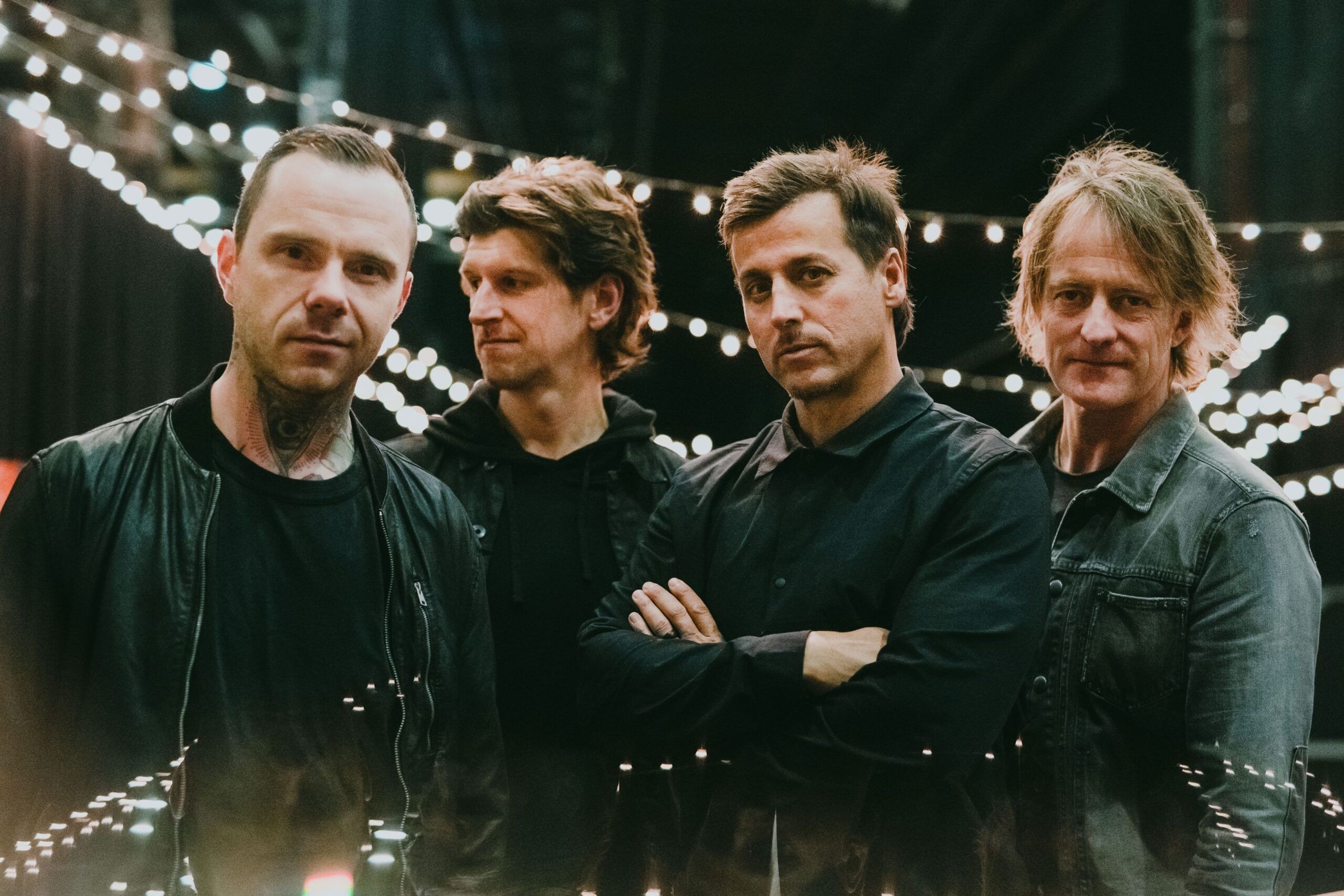
You guys are really exploring the NFT space right now, you’ve got a few apps you’re involved in, Drrops and S!NG. It goes without saying that NFT’s can put value back in recorded music. How do you guys see that as early adopters?
Raine: I’ve been a huge proponent of Web 3.0 for years now. I think with NFT’s you’re finally seeing the ability to give artists the power back and get rid of the middle man and gatekeepers. A change of distribution changes monetization, but what doesn’t get talked about enough is the community-building aspect of going direct to fan. It’s really important. We’ve talked about this forever. We yelled at our management for 10 years…
How do we give back? How do we add value?
Raine: How do we talk to our fans? How do we get email addresses from our fans? Without just begging them for it, we just want to go directly to people. Whether it’s a tour, or a new album coming out… I don’t wanna tell Spotify. I wanna go directly to the fans. It’s not a slight against Spotify, because it’s a great platform, but it doesn’t pay us anything, and the bottom line is we can’t talk to our fans through Spotify. As great as it is, they don’t let us do that. I wanna talk directly to our fans, and we’ve been trying to do that.
During Covid, with this NFT surge, we’ve had this ability to see what it promises. It’s not there yet, and I think crypto is a big friction point for a lot of fans. It’s this huge barrier where 99% of people tonight will not have a MetaMask or Coinbase wallet. So how do they participate? Is there a stigma against NFT’s because it’s a lot of rich people? And look, we’re friends with Beeple, he was actually going to do our first video. So we get it from the top down. But definitely with the Drrops app, it’s about getting people in where it’s just Apple Pay. Right now, we’re not even turning on transactions. You’re just going to get gifted a thank you that says “hey, let’s build this community together”.
It seems today as an independent artist, it’s all about building out a community for yourself, for the first time ever. For so many years it was a label game, and now it seems like you make your own scene. It’s a lot of work, and tough to do. Whatever your platform is, whether it’s TikTok or a live show…
Raine: That’s what I’m saying. Those platforms just make other people money and make other people understand that backend data. It doesn’t get to us as artists. So now it’s like sorry, we’re not gonna abandon all that stuff, but we’re gonna go out on our own, and build this cottage industry by ourselves.
As a rock band that was a new act in the early 1990s, how do you see it then versus now for new artists?
Raine: I think it’s harder. I feel for artists emotionally. It’s really difficult. We had a lot of support along the way. We had record companies.
They used to take chances on new acts.
Duncan: They did because they could monetize it. In today’s day and age, yes the artist has essentially more power. But we were lucky that we could go tour for months and months and not have to worry about where that dollar was coming from. We had support.
Any new artists you guys are really digging right now?
Raine: Yeah, tons. There’s so much great music out right now. I’m a huge Tame Impala fan. I loved that Kanye show the other night with Drake. We’re huge Kid Cudi fans.
What did you think of XXXTENTACION?
Raine: That was our jam. All his shit. I thought that guy was poised to be the next. He was seriously cutting edge.
I feel like we were robbed.
Raine: We were. And I know he wasn’t a great dude personally, but his music was unreal. We were just listening to him the other day. He was just on another level. He was the first guy to blend all these genres, and he got it all. He just got it. So sick.
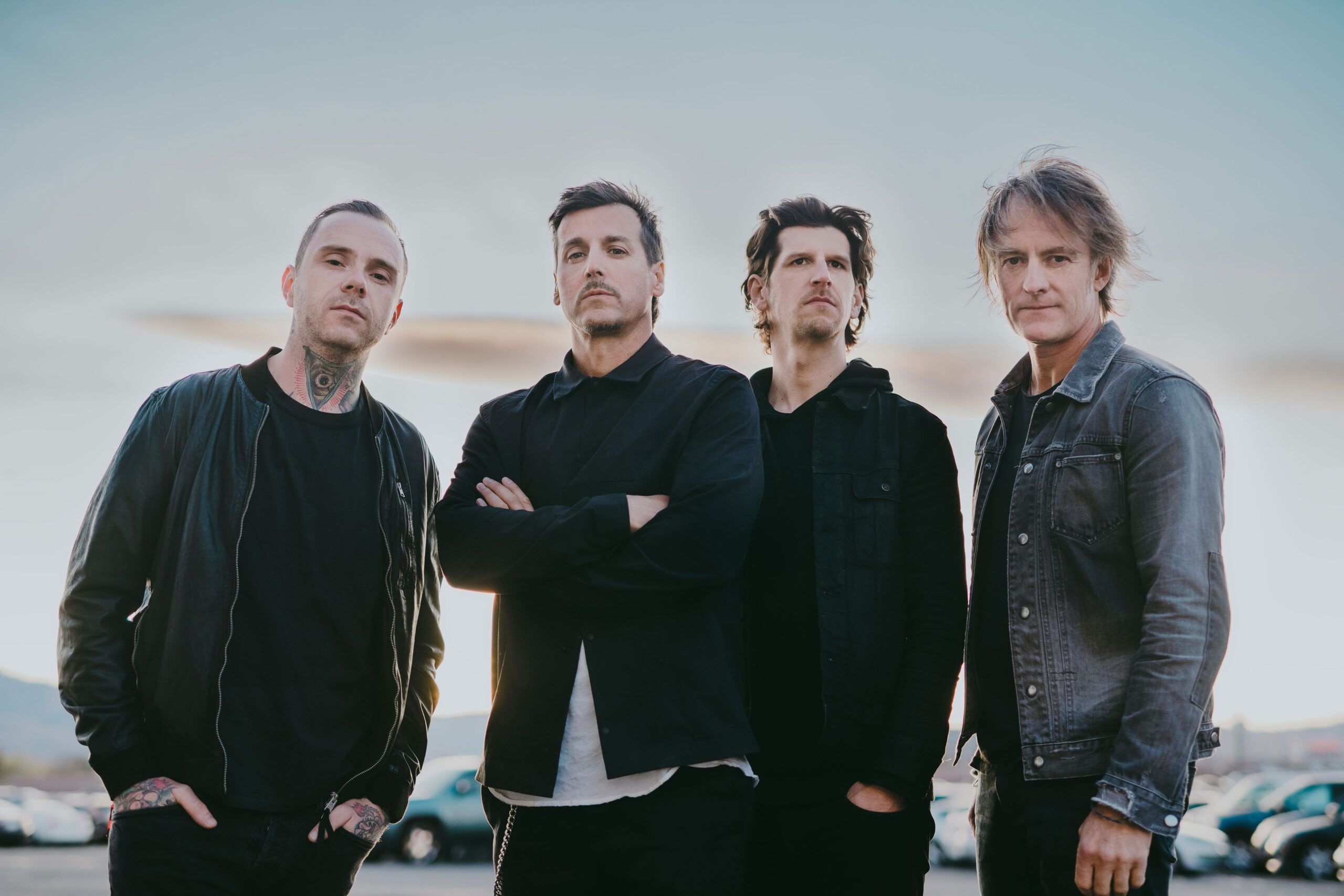
Let’s talk about Spiritual Machines. Was there a radio hit off it?
Raine: I don’t know, “In Repair” was a single, but not really big. Concept records – that record was like “What did you just do?”
Duncan: [Laughs]
Clearly it’s an album you still feel really connected to since you made a sequel. What was it like at the time, having broken big time as a band, and having hits, then putting out this album you were really proud of, but there were no hits on it. Was there any pressure from the label?
Duncan: It wasn’t overt pressure I would say.
Raine: No, they kind of understood. It was funny cause it got a ton of great press, probably the most critically acclaimed record we did.
Duncan: We got the most press ever on that album.
Raine: So they loved it for that. But we just went and made another one quickly. It was important for us to make that record.
Any songs jump out at you that have aged really well from it?
Raine: We still play “In Repair” all the time.
Duncan: We’ve been playing “Everyone’s A Junkie” too. There’s a song on it called “Are You Sad?” that has a real human quality to it, that I will always, till the end of my days, love.
Raine: There are moments on that record that are so vital for… that record kept us alive, being able to make it.
There’s a clip at the end of “The Wonderful Future” from the book, The Age Of Spiritual Machines by Ray Kurzweil. It’s a long book. You guys deliberately chose this clip to end the record, when he’s talking to Molly. Why?
Raine: I don’t know what the exact thinking was, but I think without – and we weren’t this smart back then, cause we really didn’t know where it ends – but I think from “The Wonderful Future” to the Molly thing, it was an insight into what was coming. I think the fact that we’re here 20 years later, reflecting on all of Kurzweil’s predictions, and seeing how right he was, it’s amazing. This has been the most excited I’ve been about this band for a long time because we get to do something now – most concept records, you make it, and it is what it is. This continuation is fucking credible. Not because of us, but because of our predictive nature. So everything that Ray’s saying now on Spiritual Machines II has even more profound consequence than just AI, singularity, the mosh thing from Molly and what that represents. We’re talking about big concepts now, like Universal Basic Income, singularity with coarse, which is coming, or the way technology can actually fix climate change. Now I’m not a climate-denier. I drive a fucking leaf, I take my bags to the grocery store, none of us are. But no one talks about, “wow, can technology actually fix this for us?”
Everyone always talks about the drawbacks of technology.
Raine: Yeah, because everyone wants to have that dystopian view of the future.
You ever turn on The Weather Channel?
Raine: Exactly!
“FORECASTING THE END” – like what are you guys talking about, is it gonna rain today or not?
Raine: That’s an incredible point because that’s what we get used to.
Sensationalism.
Raine: Right! So what Ray is saying is not good news, but we’re gonna actually try to elevate that conscious form.
So you’re saying Ray has taken a positive turn.
Raine: 100%
He’s gone from the perils to the positives, but rooted in reality.
Raine: Yes, very bright, and rooted in science.
What is he chiming in with on the new album.
Raine: He gives five new predictions, and they’re all very positive. Like “wow, this is good,”
He should write a sequel book.
Raine: It’s coming this fall.
What is a “mosh”, which he talks about?
Raine: It’s the hybrid between the machine and living being, and it’s happening now. Even that prediction – he never called it what it is, but there are apps right now where they can generate music. That’s what a mosh does. They’re able to create art on their own. That’s where we are with AI.
Duncan: Some of that art that I saw you retweeted was insane. It was an AI listening to Spiritual Machines, creating art.
Raine: There’s an app right now called Boomy, where if you sign up, it will create songs for you. It will put them on Spotify, and I heard that the Boomy songs, which if you pay for the app you get the rights to those songs… You don’t write them, they’re computer-generated. It is making $25 million a month in streaming.
Duncan: Holy shit.
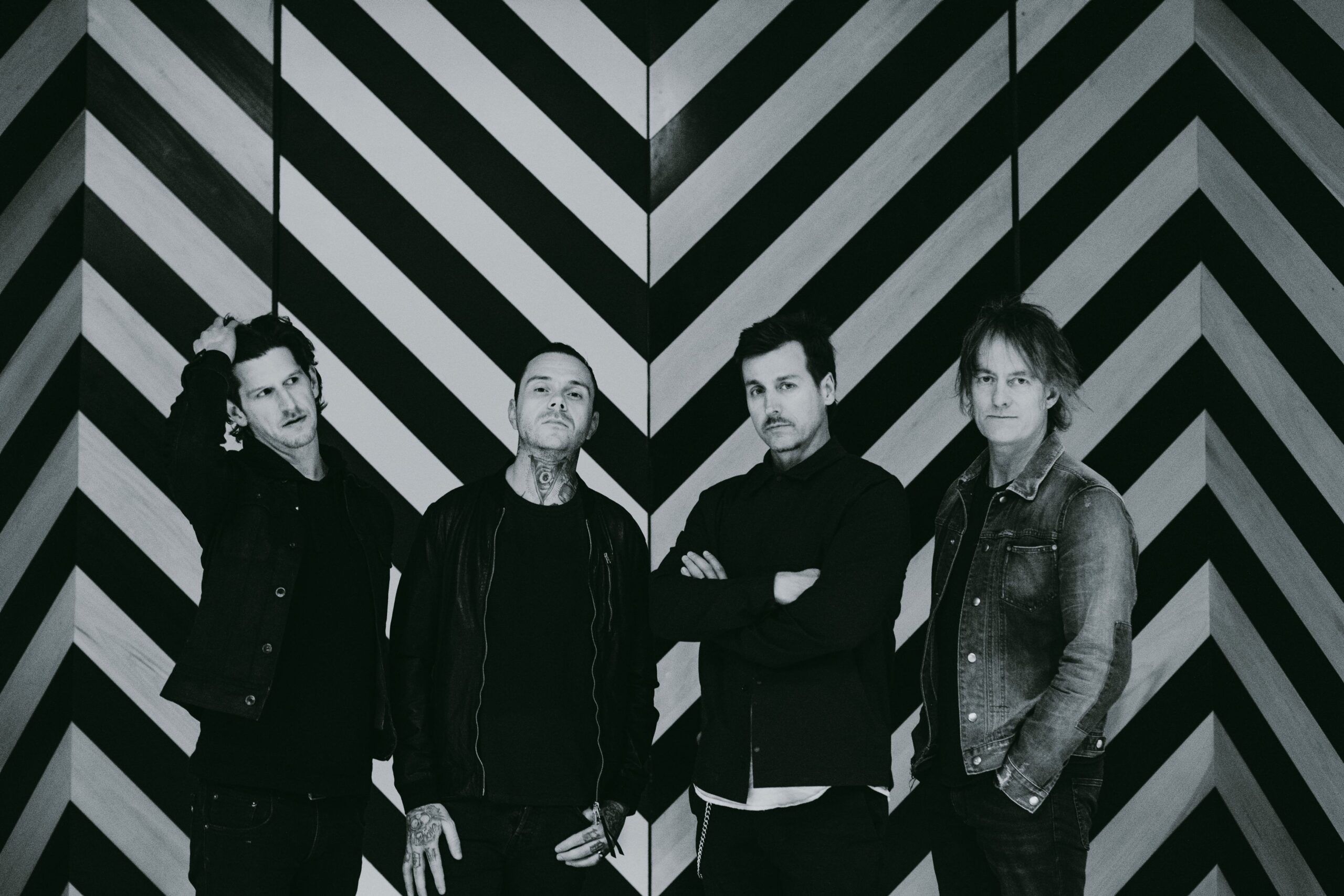
After Spiritual Machines came Gravity which was a bit of a departure. At the time did it feel like a big departure? Was the fanbase reacting like “fuck those guys, they’re selling out” or was it well-received?
Raine: There was both I think. “Somewhere Out There” was such a huge song for us. Again, down here in the US. So it felt like “Oh, we’re back.” “Oh this band is back, they’re bigger than ever.” I think it was actually our best-selling record, but there was definitely some backlash too.
Duncan: It was our best-selling tour down here too.
Raine: Yeah, it was massive for us. On both pop and alternative radio.
Do you have a favourite song from that album?
Duncan: I love “Innocent”, I’ll never get sick of playing “Innocent”. It’s such a cool song, but probably “Bring Back The Sun”.
Raine: Yeah, I agree with that.
Duncan: I hate talking about our own music in a way that sounds egotistical, but to me, songs that stand up the best over time are the ones that don’t sound like an era, they just sound like a song. And to me, I was practicing that the other day for some reason, it just sounds like a really great song.
Raine: You know, we went out to Maui with Bob Rock, who obviously has a very specific way he produces music. He’s a rock guy at heart, so he kind of put his spin on us. After Spiritual Machines, and Happiness…, we felt like “Ok, this is different, we’ll try it, and see how it sounds.” And we can do that. We did a good job. Some of those songs were massive. It was a moment, and then we went and did Healthy In Paranoid Times, and that was a struggle.
In what way?
Raine: Cause we worked with Bob again, but we didn’t wanna make just a stripped-down rock record. I remember Bob came out to see us play Vancouver and he was like “Wow, you guys are like a really artsy band.”
Duncan: Yeah, there were some cool moments on that record, but it was a struggle.
Raine: Yeah, it’s not our favourite.
Duncan: It’s hard to listen back to it, and not hear the struggle that was going on.
Why isn’t it a favourite?
Raine: It was just really disjointed. We recorded it in five or six different studios, all at different times. Think back to Spiritual Machines. That was all done in a moment in time.
You can tell all the sessions were right in a row. The sounds, the colours…
Raine: Yeah, such cohesiveness. We did it all in the same studio. We walked into the studio every day and did it.
You guys were bigger after Gravity obviously, and I’m not sure that this was talked about much, but Raine you did a lot of production on the second Avril Lavigne album. Was producing other artists something you were trying to get into? She was a star at that time. What was it like putting your hands on that project?
Raine: Yeah, the story is funny. What happened is my wife started writing with her, and they became friends. She had just come off that first record and was huge. She was a fan of Chantal’s and said “Hey, can you help me write my next record?” She was young and basically moved in with us in Malibu. So just by virtue, they would write these songs, and she would go write with different producers and be like “It was a terrible session,” so I’d just be like “Ok, let’s just put some drums up and do it here.”
Is producing other artists something you guys want to get into still?
Raine: I did it for a minute. I went heavy for a minute and then got tired of it because it really drained me creatively.
Is there an album as a whole that you guys look back at and feel the most drawn to?
Raine: I really like Curve. Curve was this really great record we did on our own. There are so many great songs and moments on that record that I think was important for us.
There is something about the chorus in “Fire In The Henhouse,” the way it comes in..
Raine: Fuck, I love that song. We should play that man. Ah, I love that song. It’s really different.
Duncan: It’s the same progression, just an octave lower. It’s funny, it used to be called a different song, with a different chorus. It had one of those huge choruses, and maybe one of the greatest guitar solos Steve has ever played, and we cut it. It was a great solo for that version of the song, but then we took it in an artsier frame. I really liked Somethingess quite frankly, our last record.
Raine: Yeah, that was great too.
Duncan: There are some really sneaky great songs on that album.
I think my favourite is “Falling Into Place” – is that what it’s called?
Raine: Oh god yeah, I love that song.
Duncan: That song almost didn’t get recorded.
Raine: Why didn’t it almost get recorded?
Duncan: “Falling Into Place” was the one we weren’t gonna record, but we had done some contest where someone could see us live in a studio. We were gonna do a mix session. And that was a demo of a little idea you had. We recorded that at the Coalition studios.
Raine: Ah, that’s right.
Duncan: We kept a lot of it. The drums and the bass are live off the floor from basically the demo session, and we built it up from there.
A demo session with an audience.
Duncan: With an audience – contest winners in the room, in a crappy studio. That was the last song we recorded for that record. I love that song.
Raine: We played that live for a minute right?
Duncan: Once.
Raine: Really?
Duncan: I would like to play that more (laughs)
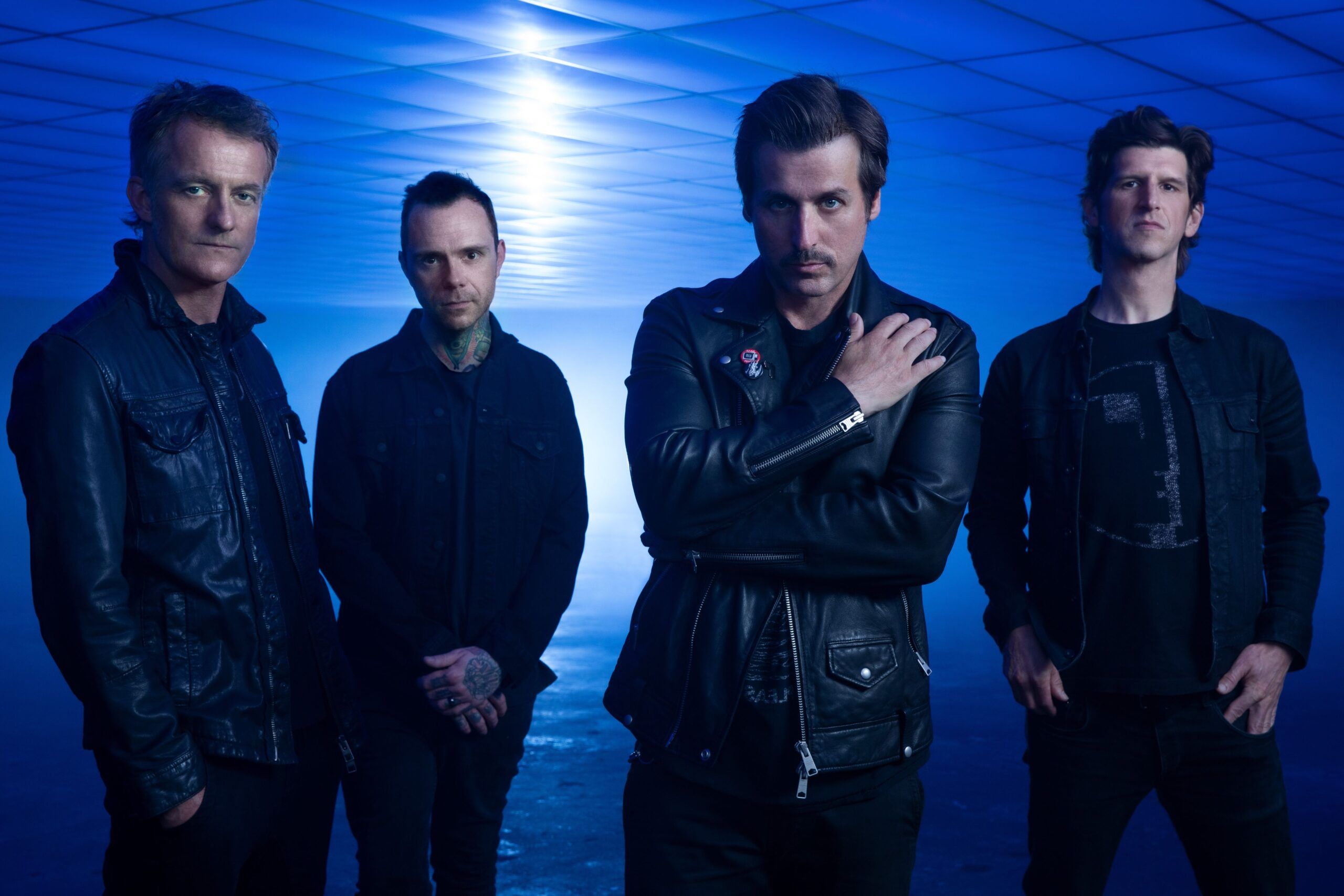
What sparked the idea of Spiritual Machines II?
Raine: So we were all stuck indoors during the pandemic, and Spiritual Machines had its 20th anniversary. We had started making a new record, and it just felt like – even Dave Sitek, who did most of the production on this new one, he’s a very future-leaning guy. Loves futurists, knows Kurzweil, gets that whole thing. He said something about this record when we started making it, “This has to be future rock.” And I was like “Fuck, please. Can we do that?” Do you know? So he definitely got us there on the production side. It felt like if there’s any record we’re gonna do that ties into Spiritual Machines sonically, this is it. It was a good time to go back and see what Ray got right and wrong. See what the new predictions are.
I think especially because the whole zeitgeist is introspective because of Covid. Everyone was locked up alone, so naturally, everyone is thinking about these things.
Raine: That’s it!
Duncan: We’ve been talking about a Spiritual Machines follow-up for 5-10 years at least. It just felt honest to do it at this point in time.
I looked up some stuff on Kurzweil, and watched a brief video of him talking, just to put a person to the thoughts. The one thing I saw him talking about, and this was in 2006, was he was working with the US military to better equip us to deal with potential Bioterrorism threats. It was crazy to see him talking about this 15 years ago. And naturally, all the comments were like “Seeing this in 2020, wow”. So people’s heads are there.
Raine: Yeah, it’s all very interesting.
Dave Sitek is the guy from TV On The Radio. What did he bring sonically to future rock?
Raine: He has a great ability to take an idea, whether it’s a full demo, like “Stop Making Stupid People Famous” was basic. Duncan and Jason, our drummer, came up with that whole groove, built a track, sent it to me and I was like “I love this.” I sang on it right away. Felt like a song. We knew it wasn’t finished, but we knew it was good enough to send to someone like Dave. He deconstructs everything. So whether I send him a demo I did with an acoustic or a full track, he can see through, and way past stuff, pull everything out – he does a lot of programming, which there’s a lot of on this record – start from scratch, and somehow not lose the integrity of Our Lady Peace.
It’s hard.
Raine: It’s hard because I’ve worked with so many producers who will do that, and it ends up ruining it, like turning it into a pop song that sounds terrible. Dave put his touches on it, and I don’t think on any of the songs he ever lost what makes us us.
That’s a rare gift for any producer to have.
Raine: 100%, it’s very thoughtful.
That’s great, and that’s why it’s always good to self-produce, but at the end of the day as an artist, you’re an entrepreneur, a performer, all these things. It’s hard to wear all the hats.
Raine: Right, and we don’t want to do that. He’s just the best collaborator we’ve ever worked with, to be honest. I’ve never been so inspired. He would literally take our stuff, send me a trackback, and I’d sit in front of the speakers in my studio and be like “Holy fuck, I can’t wait to sing this.”
Just like the choices and colours?
Raine: Yeah, you know we all did the work, doing the demos and writing, etc., and give it to him. Then I’d get it back, mostly for me as a singer, and be like “Oh, now I can just be a singer. There is nothing I can do to these songs to make them better. Nothing. It’s the dream. I get to be a singer again.
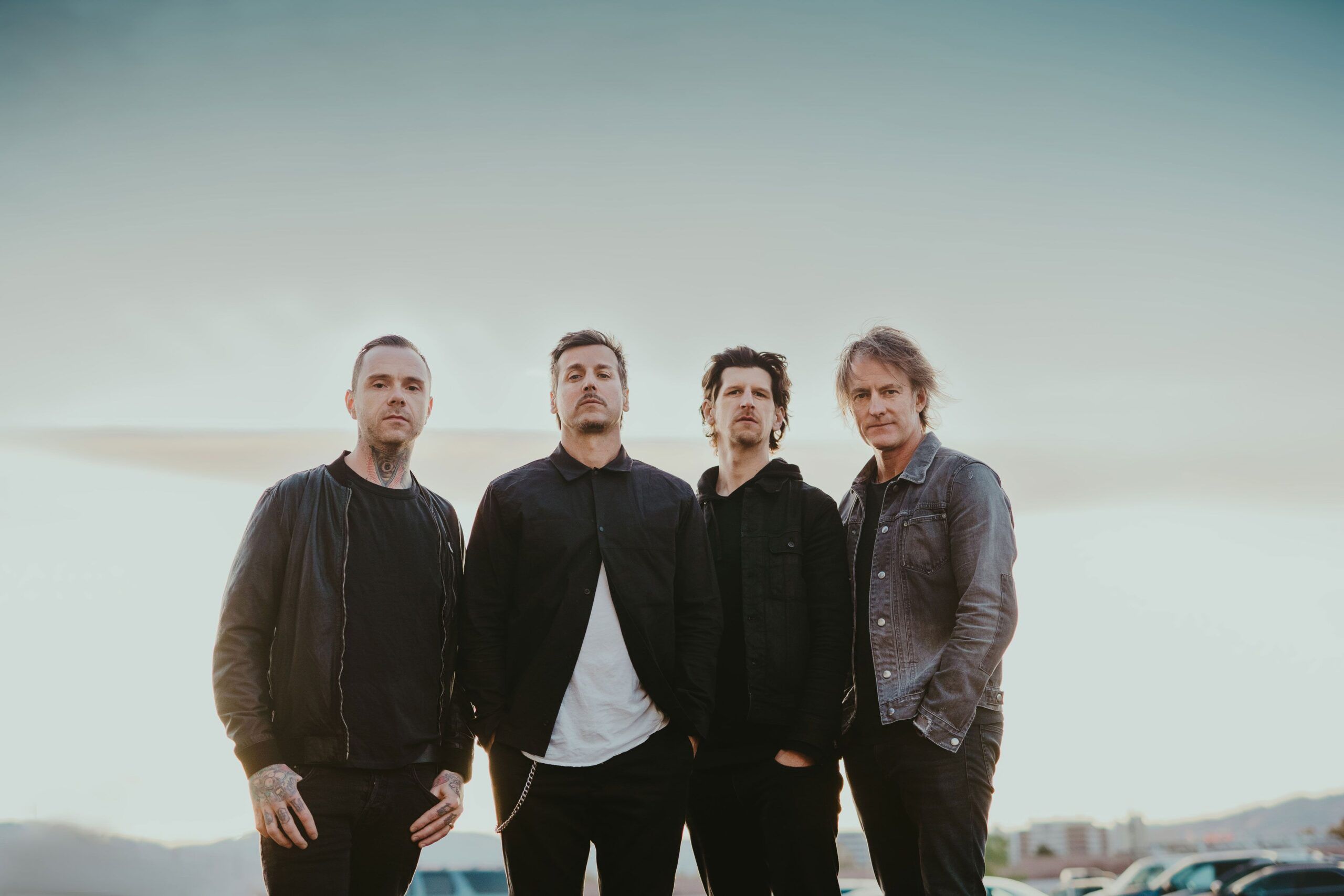
So tell me about his style briefly. Programming…
Raine: Programming. He’s a big modular guy. We kept the guitars. There’s so much guitar on this record, but I wouldn’t say it’s a rock record traditionally. This is much more interesting and experimental. And I think when you see it live, everything kinda works. All the new music elevates the set.
Duncan: Yeah, there was some synth bass on it, that I obviously don’t play live. But it translates live.
We touched on “Stop Making Stupid People Famous”, a bit different for you guys, dancey and poppy. Tell me about the genesis of that song/idea.
Raine: I had that lyric for three or four years, and I was always waiting for the right track to put it on. I think the synergy of why everything works so well is that Ray’s predictions are really positive and this record isn’t a dark record by any means. It feels like it has hips, you wanna dance. It feels a little bit more fun, which I don’t think we’ve ever used to describe our music ever. That intersection of what we do, and having a little bit of fun with it is really amazing. “Stop Making Stupid People Famous” is that introduction to where it’s tongue-in-cheek. It’s trying not to be heavy. It’s taking the piss out of things. David Byrne was great at that with Talking Heads; heavy lyrics, but delivered in a way that’s kind of tongue-in-cheek.
Duncan: The track originated with Jason and me. We just kept sending him different tracks, and he wrote us back like “Ok, this is good.” It’s not the track you end up hearing right now, but it’s close. It was very collaborative.
What was it like working with Nadya Tolokkonikova who – one of my friends produced some Pussy Riot tracks and said she was the most punk rock person he’s ever met in his life.
Duncan: She is badass.
Especially with the reputation she carries – what was it like working with someone like that, and how did it come about? Deciding to put her on the track.
Raine: I met Nadya like six years ago on a tech project I was doing. We just hired her. It was all about counterculture. It was kind of the Citizen app, before Citizen. We just wanted people to live stream – if you were at a protest, or some shit is happening. That was the whole idea for an app called RecMob. We were like, who should play the opening launch party. We need someone who’s counterculture but has respect. So I met her there, we hung out. She just DJ’d that party, and we got to know each other a bit. When we were talking about this song, it definitely needed equity, needed a female on it 100%.
Yeah, I’m not always keen on features, but her voice coming in on this track, the female voice, is super effective.
Raine: Yeah, and knowing it’s her… it’s like, “Oh yeah”. She says she’s been in jail. She’s not lying. As Duncan said, she’s a badass. We’re honoured she did it.
Are you guys optimistic or pessimistic about where technology is taking us?
Raine: Really optimistic.
Duncan: Optimistic, yeah.
Raine: I am totally bullish on the idea that I think this Web3 thing can do great things for creators and artists. And on bigger concepts, like Ray’s talking about, maybe reduce climate change through technology or things like UBI.
Interview by Andy Gorel
Spiritual Machines II is out now.

